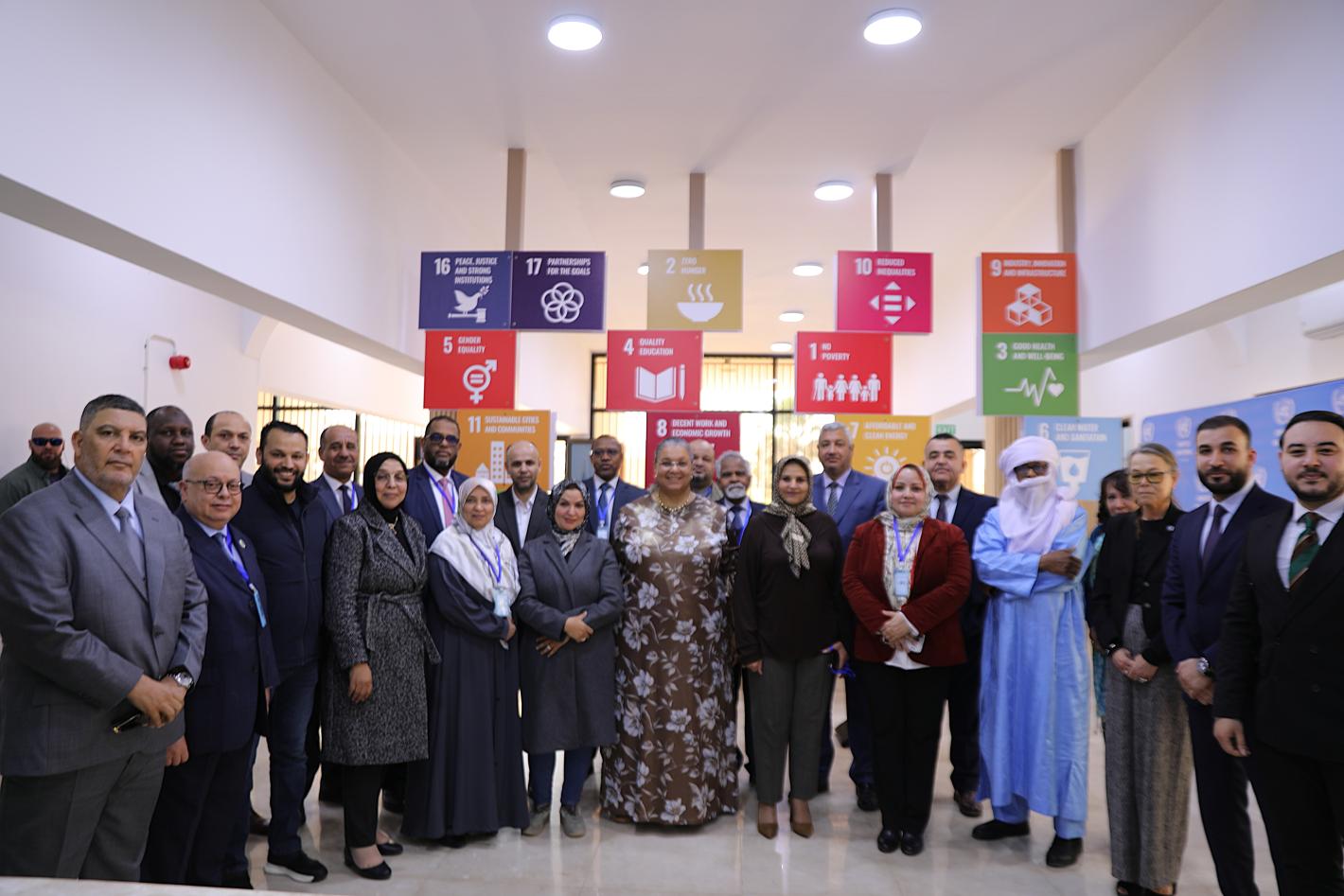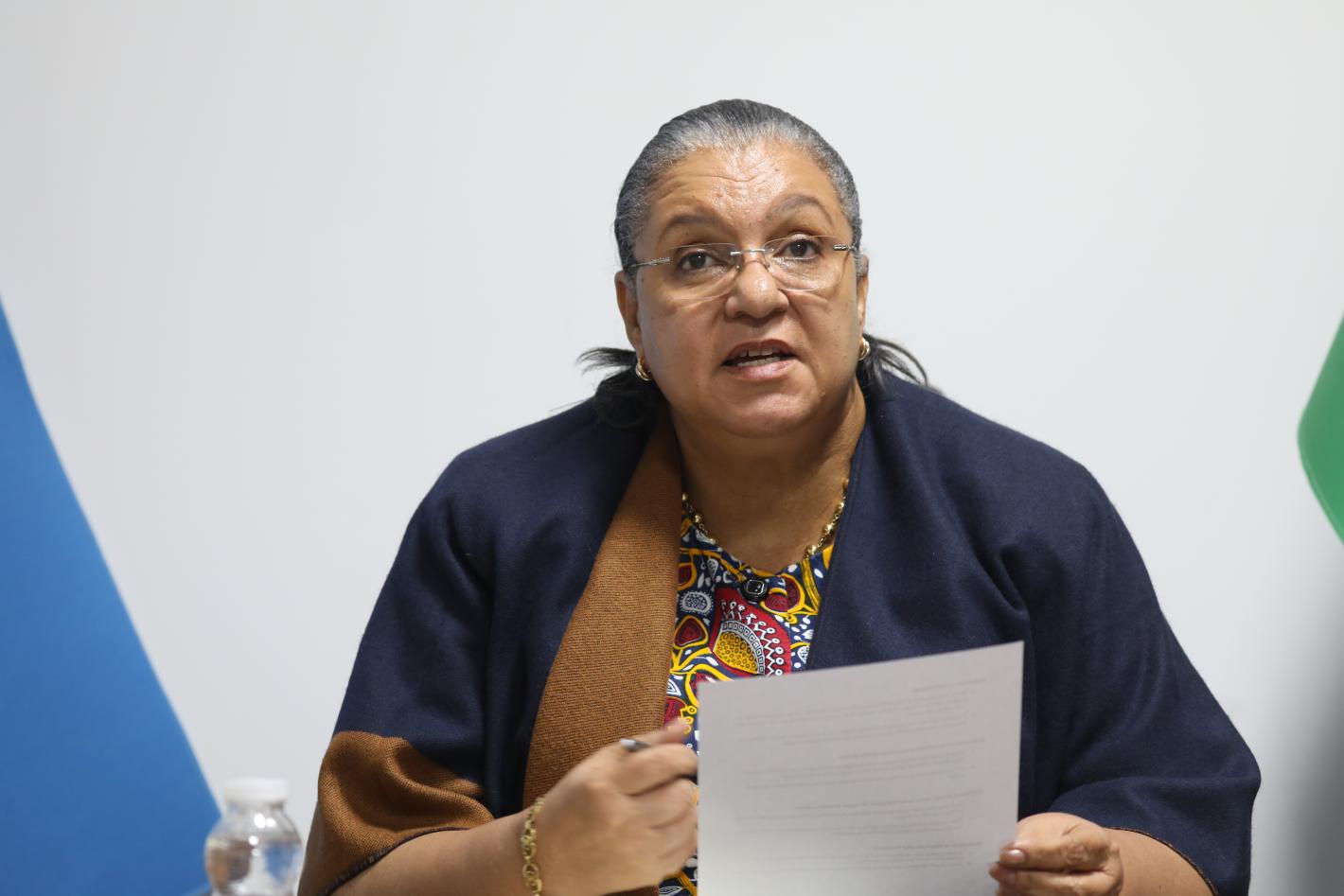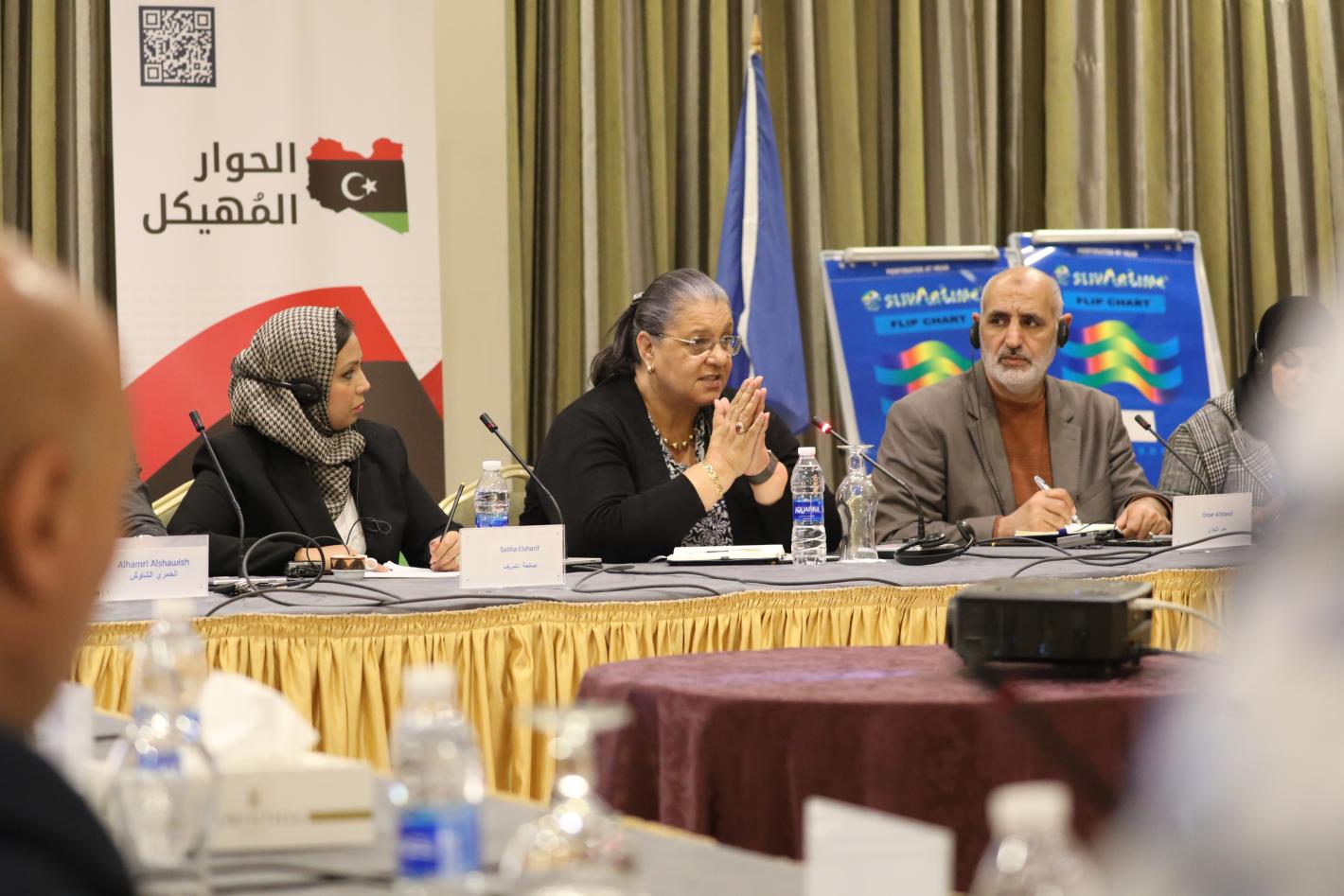طرابلس – (1-31 كانون الثاني/يناير 2019) - وثقت بعثة الأمم المتحدة للدعم في ليبيا وقوع عدد من الخسائر في صفوف المدنيين بلغت واحد وعشرين (21) شخصاً – ثمان (8) حالات وفاة وثلاث عشرة (13) حالة إصابة بجروح – وذلك خلال الأعمال العدائية في جميع أنحاء ليبيا. ومن بين الضحايا ستة رجال وامرأتان لقوا مصرعهم فيما أصيب تسعة رجال وثلاث نساء وطفل واحد بجروح.
وقد نجمت معظم الإصابات في صفوف المدنيين عن عمليات القصف (مقتل ستة أشخاص وإصابة سبعة)، تليها عمليات إطلاق نار (مقتل شخصين وإصابة ثلاثة)، ثم مخلفات الحرب غير المنفجرة (إصابة ثلاثة أشخاص بجروح).
ووثقت البعثة خسائر في صفوف المدنيين في مدينة طرابلس (مقتل ستة أشخاص وإصابة سبعة بجروح) وفي بنغازي (مقتل شخص واحد وإصابة شخصين) ومنطقة فزان (مقتل شخص واحد) وسبها (إصابة ثلاثة مدنيين بجروح) والخُمس (إصابة مدني واحد بجروح). ولقي أحد عشر (11) مقاتلاً مصرعهم وأصيب اثنان وستون (62) آخرون أثناء الإقتتال في طرابلس، في حين لم يتسنّ التأكد من الصفة المدنية لحالة وفاة أخرى.
ووثقت البعثة أيضاً أربع حالات إصابة أخرى جراء انتهاكات محتملة للقانون الدولي الإنساني وتجاوزات أو خروقات للقانون الدولي لحقوق الإنسان في منطقة فزان ومدينتي بنغازي وسبها.
الإصابات في صفوف المدنيين
طرابلس
حصد الإقتتال الذي اندلع في 16 كانون الثاني/يناير بين مجموعات طرابلس المسلحة من جهة ومجموعة الكانيات المسلحة وحلفائها من جهة أخرى أرواح ما لا يقل عن ستة مدنيين وأسفر عن إصابة سبعة مدنيين آخرين بجروح. وتسبب استخدام أسلحة ذات تاثيرات واسعة النطاق، والقصف العشوائي في معظم الإصابات في صفوف المدنيين.
ومن بين من سقط من الضحايا بتاريخ 16 كانون الثاني/يناير 2019 رجل لقي حتفه في عقر داره في منطقة بن غشير عندما سقطت قذيفة على منزله، وطالب في كلية الاقتصاد بجامعة طرابلس قُتل في منزله جراء قصف عشوائي، بالإضافة إلى امرأتين ورجل مسنّ لقوا حتفهم في منطقة راس يوسف أثناء محاولتهم الفرار من القصف.
وبالإضافة إلى ذلك، قتل المصور الصحفي محمد بن خليفة أثناء أدائه لعمله يوم 18 كانون الثاني/يناير 2019 وذلك عند تعرض المركبة العسكرية التي كان يرافقها لقصف عشوائي في منطقة قصر بن غشير جنوبي طرابلس.
أما بالنسبة للإصابات، ففي 16 كانون الثاني/يناير 2019، أصيب رجل بجروح جراء شظية أصابت جسده إثر تعرض مركبته لقصف عشوائي في جنوبي طرابلس. وفي اليوم نفسه، تعرضت مركبة إسعاف تابعة لقسم الطوارئ في مسشفى ترهونة لقصف عشوائي من مصدر غير معلوم وأسفر هذا الحادث عن إصابة اثنين من الكادر الطبي كانا يقومان بواجبهما داخل المركبة.
وفي 18 كانون الثاني/يناير 2019، أصيب ثلاثة مدنيين، امرأتان ورجل، بجروح إثر قصف عشوائي طال مركبتهم. وفي اليوم نفسه، جُرح ثلاثة مدنيين، طفلة ورجل وامرأة مسنّين، جراء تعرض منزلهم للقصف العشوائي.
منطقة فزان
في 18 كانون الثاني/يناير 2019، قتل ما لا يقل عن مدني واحد أثناء اشتباكات مسلحة نشبت بين الجيش الوطني الليبي وعناصر مسلحة في منطقة القرضة الشاطئ في منطقة فزان.
سبها
بتاريخ 30 كانون الثاني/يناير 2019، أصيب ثلاثة مدنيين كانوا يجمعون الخردة المعدنية جراء انفجار مخلفات حربية غير منفجرة. ولا تزال ملابسات حادث الانفجار هذا والذي وقع في مدينة سبها غير معروفة.
حوادث المرافق المدنية
في 10 كانون الثاني/يناير 2019، قام مسلحون مجهولو الهوية بإطلاق قذائف آر بي جي على فرع بنك الأمان في السياحية في طرابلس. وفيما عدا الأضرار التي أصابت المبنى، لم يتم الإبلاغ عن وقوع أية خسائر.
وفي 16 كانون الثاني/يناير 2019، أفادت التقارير بتعرض مركبة إسعاف تابعة لقسم الطوارئ في ترهونة للقصف العشوائي من مصدر غير معروف. وأسفر هذا الحادث عن إصابة اثنين من الكادر الطبي بجروح أثناء أدائهما لواجبهما داخل المركبة (كما ذكر آنفاً).
وفي 14 كانون الثاني/يناير 2019 وفي منطقة السدادة جنوب شرقي مدينة مصراتة، افادت التقارير بقيام مسلحين مجهولي الهوية بأعمال تخريبية لأنبوب النهر الصناعي الرابط بين القرضابية والسدادة. وأسفر ذلك عن تدمير حوالي مئة وعشرين (120) صمام ضغط، الأمر الذي يحتمل أن يكون قد أثر على مستوى تجهيز المياه للمنطقة الوسطى في ليبيا.
وفي 18 كانون الثاني/يناير 2019، تم إخلاء مستشفى عمر علي عسكر في طرابلس بعد وقوع اشتباكات في محيطه وتعرضه للقصف العشوائي. وعلى إثر ذلك، تم نقل أربعة أطفال، من نزلاء المشفى إلى مستشفى الجلاء للأطفال في العاصمة. ولم يرد وقوع خسائر باستثناء الأضرار التي لحقت بالمبنى.
إسناد المسؤولية
لم تتمكن بعثة الأمم المتحدة للدعم في ليبيا من التحقق من مسؤولية أي طرف من أطراف النزاع عن سقوط بقية الضحايا من المدنيين أثناء الفترة التي يغطيها التقرير.
ضحايا الانتهاكات الأخرى للقانون الدولي الإنساني والانتهاكات أو التجاوزات على حقوق الإنسان
بتاريخ 6 كانون الثاني/يناير 2019، أصيب ضابط جمارك بجروح جراء عيار ناري أطلقه عليه مهاجمون مجهولو الهوية بينما كان يقود مركبته عبر الطريق الساحلي الرابط بين الخُمس وزليتن. ويُعتقد أن الضحية تعرض لمحاولة اغتيال ذات صلة بعمله في ميناء الخُمس حيث كشف في وقت سابق عن شحنة من الأسلحة في شهر كانون الأول/ديسمبر 2018.
وفي 22 كانون الثاني/يناير 2019، أصيب رجل بجروح جراء إطلاق نار في حي الماجري في بنغازي. ولم يُعرف مصدر إطلاق النار فيما لم تشهد المناطق القريبة أية اشتباكات أثناء وقوع الحادث.
وفي 22 كانون الثاني/يناير 2019، أصيب رجل بجروح جراء إطلاق نار في حي راس عبيدة في بنغازي، علماً أن مصدر إطلاق النار غير معروف ولم تشهد المناطق القريبة أية اشتباكات أثناء وقوع الحادث.
وفي 22 كانون الثاني/يناير 2019، قُتل شاب في الثامنة عشرة من عمره في طبرق إثر إصابته برصاصة طائشة، ولم يُعرف مصدر إطلاق النار فيما لم تشهد المناطق القريبة أي اشتباكات أثناء وقوع الحادث.
ملاحظة
تقتصر أعداد الضحايا المدنيين المذكورة أعلاه على الأشخاص الذين تعرضوا للقتل أو الإصابة في سياق أعمال القتال والذين لم يشاركوا فيها بشكل مباشر. ولا تتضمن هذه الأعداد الضحايا الذين سقطوا كنتيجة غير مباشرة للقتال، على سبيل المثال حالات الإعدام بعد الأسر أو التعذيب أو الاختطاف أو الضحايا الذين سقطوا نتيجة للتبعات غير المباشرة للقتال. وتستند هذه الأعداد إلى معلومات قامت بعثة الأمم المتحدة للدعم في ليبيا بجمعها والتحقق منها عبر نطاق واسع من المصادر في ليبيا، بما في ذلك المدافعين عن حقوق الإنسان والمجتمع المدني والمسؤولين الحاليين والسابقين وموظفي الحكم المحلي وقيادات وأعضاء المجتمعات المحلية والشهود والمتأثرين بشكل مباشر إلى جانب التقارير الإعلامية. ولكي تتمكن البعثة من تقييم مصداقية المعلومات التي يتم جمعها، تقوم البعثة كلما أمكن بمراجعة المعلومات الموثقة، بما في ذلك السجلات الطبية وتقارير الطب الشرعي والأدلة الفوتوغرافية. وتمثل هذه الأرقام فقط ما تمكنت البعثة من توثيقه خلال الفترة التي يشملها التقرير. ومن المحتمل ألا تكون نهائية وأن تتغير مع ظهور معلومات جديدة عن حوادث نتج عنها وقوع إصابات في صفوف المدنيين أثناء هذه الفترة.
وبالمثل، وفيما تحاول البعثة بشكل منهجي أن تضمن أن الحالات التي توثقها تقوم على أساس معلومات ذات مصداقية، سيكون من المطلوب إجراء المزيد من التحقق للوصول إلى مستوى أعلى للإثبات. ولم تتمكن البعثة من إجراء زيارات مباشرة للمواقع في ليبيا للحصول على المعلومات بسبب الوضع الأمني. كما أن انقطاع الاتصالات خاصة في المناطق التي تسيطر عليها جماعات أعلنت ولاءها لتنظيم داعش والخوف من الأعمال الانتقامية ضد مصادر المعلومات تزيد من عرقلة عملية جمع المعلومات.
وبينما لا تعتبر جميع الأعمال التي تؤدي إلى وقوع إصابات في صفوف المدنيين خرقاً للقانون الإنساني الدولي، تذكر البعثة كافة أطراف الصراع بأنهم ملزمون باستهداف الأهداف العسكرية فحسب. إذ أن الهجمات المباشرة على المدنيين وكذلك الهجمات العشوائية – التي لا تفرق بين المدنيين والمقاتلين – محظورة. كما أن الهجمات التي يتوقع منها أن تتسبب في خسارة عرضية للأرواح بين المدنيين وإصابتهم والإضرار بالأهداف المدنية بما يتجاوز المكاسب العسكرية المتوقعة الملموسة والمباشرة أيضاً محظورة. وتعتبر هذه الهجمات بمثابة جرائم حرب يمكن محاكمتها أمام المحكمة الجنائية الدولية.
ولضمان حماية أكبر للمدنيين والبنية التحتية الأساسية، يجب على جميع الأطراف المشاركة في القتال في ليبيا أن تتوقف عن استخدام مدافع الهاون وغيرها من الأسلحة غير المباشرة والغارات الجوية غير الدقيقة على المناطق المأهولة بالمدنيين، وألا يتم وضع المقاتلين أو الأهداف العسكرية الأخرى في المناطق المأهولة بالسكان. كما يجب أن تتوقف عمليات إعدام الأسرى ويجب معاملة الأسرى، بما في ذلك المقاتلين، بصورة إنسانية في جميع الظروف. كما يعتبر قتل أو تعذيب الأسرى جريمة حرب كذلك، بغض النظر عن التهمة التي قد توجه للأسير.
وتشمل الحالات التي تم تسليط الضوء عليها في الجزء المعنون "الإصابات الأخرى" الإصابات الناجمة عن الحوادث التي تشكل انتهاكًا للقانون الإنساني الدولي أو القانون الدولي لحقوق الإنسان، ولكنها ليست نتيجة مباشرة للأعمال العدائية، من بينها على سبيل المثال حالات الإعدام عند الأسر للمدنيين وغيرهم من الأشخاص العاجزين عن القتال (مثل المقاتلين المعتقلين) والتعذيب الذي يسبب الموت. ويشمل هذا الجزء أيضاً الإصابات الناجمة عن انتشار الأسلحة والإفلات من العقاب الذي تحظى به الجماعات المسلحة والشبكات الإجرامية –وهذه الإصابات تعدّ نتائج غير مباشرة للأعمال العدائية. والحالات المشار إليها في الجزء المعنون "الإصابات الأخرى" غير مشمولة في أرقام الخسائر في صفوف المدنيين ولا تشمل سوى الحالات التي وثقتها البعثة خلال الشهر.
يرجى الاتصال بفريق رصد حقوق الإنسان التابع لبعثة الأمم المتحدة للدعم في ليبيا للإبلاغ عن أية معلومات عن الخسائر بين المدنيين في ليبيا على عنوان البريد الإلكتروني التالي:
unsmil-monitoringhumanrightsteam@dfs.un.org.






